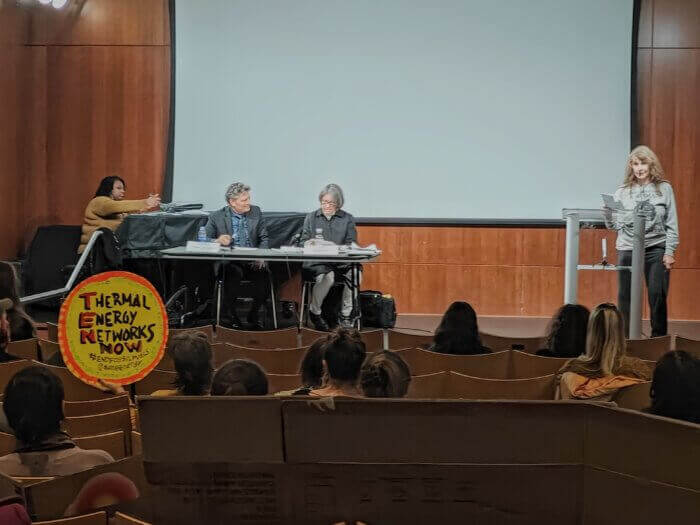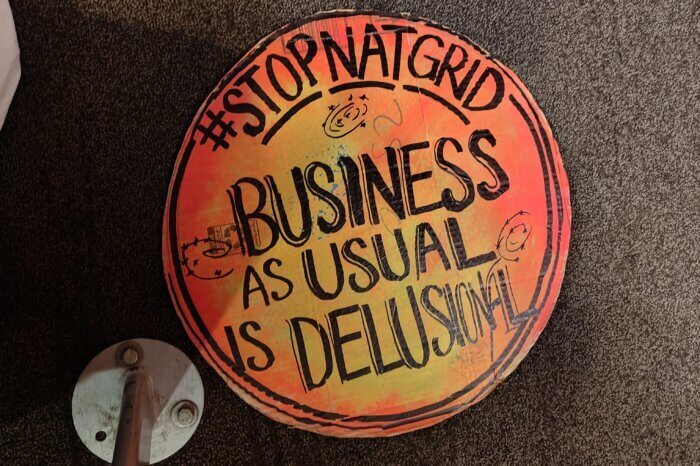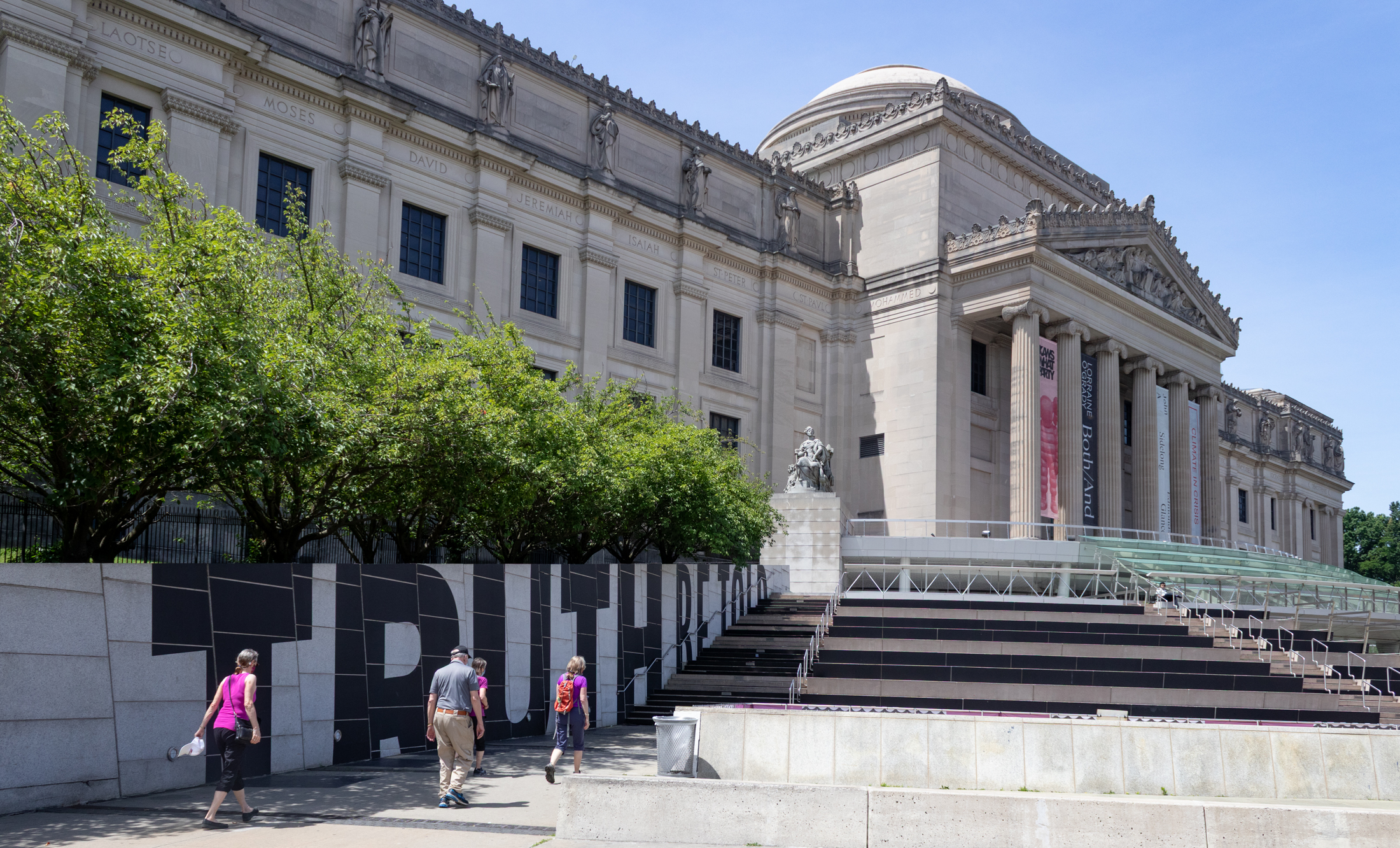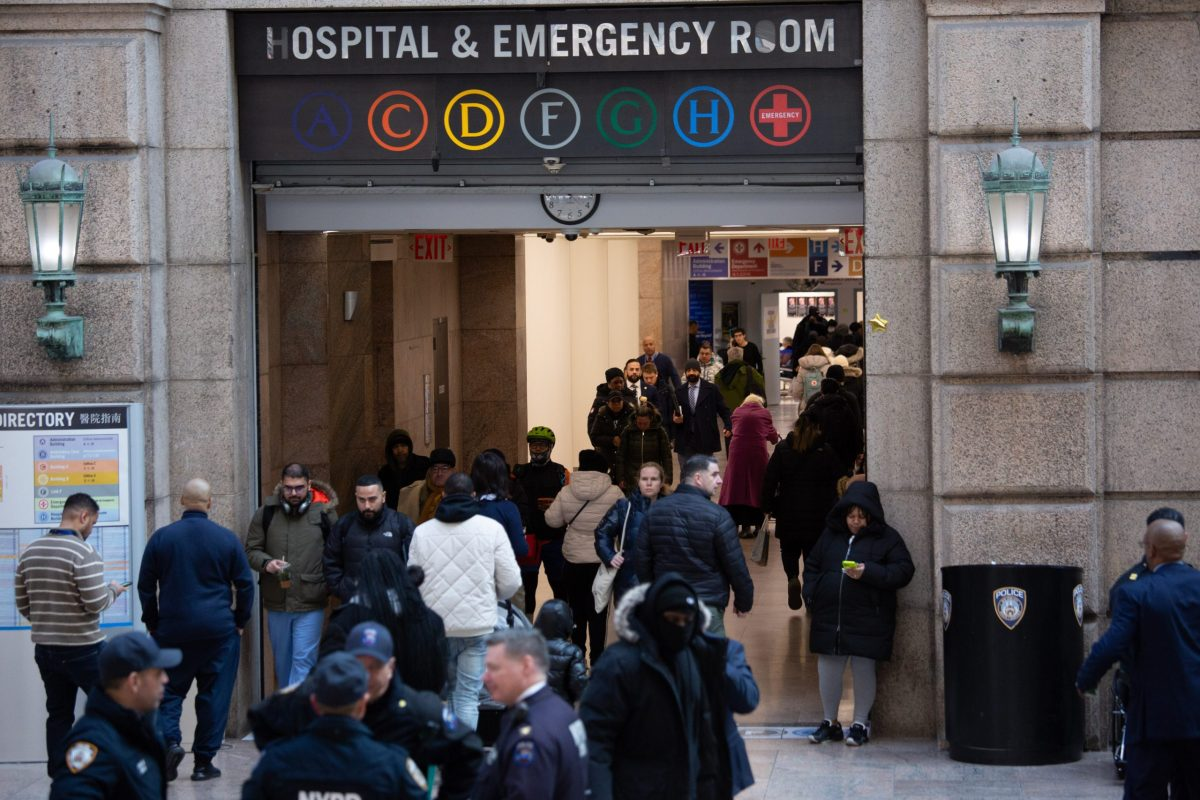Brooklynites Push Back Against National Grid Plan to Hike Rates
Utility giant National Grid is proposing a significant rate hike for its New York City customers, and Brooklynites are not happy.

Dozens of opponents spoke against National Grid’s plan to raise bills at a November 14 public hearing. Photo by Ximena Del Cerro
By Ximena Del Cerro, Brooklyn Paper
Utility giant National Grid is proposing a significant rate hike for its New York City customers, and Brooklynites are not happy.
The utility company, which provides natural gas to more than 2 million customers in Brooklyn, Queens, Staten Island, and Long Island, is seeking to raise monthly bills in New York City by an average of $30 per month in an effort to increase its annual revenue by $414 million. On Long Island, the company hopes to hike monthly bills by $28 to increase annual revenue by $228 million.
In documents filed with the Public Service Commission, which oversees rate hikes, the company said the proposed increases would fund “critical infrastructure” and repairs to existing gas lines and other equipment, in addition to updating emissions-reducing systems and renewable energy projects.
But while National Grid maintains that the significant bill increase is needed to keep up its systems and meet the emissions goals of the state’s climate law, Brooklynites aren’t convinced — and showed up outside a November 14 public hearing on the proposal at the Central Library to say that they reject any new fossil fuel-related projects.

Ahead of the hearing – which gave National Grid an opportunity to explain its proposals, and Brooklynites the chance to voice their opposition to PSC representatives, dozens of people rallied to demand accountability for the environmental harm caused by the gas and power company in the past.
“The hearing we’re engaged in today is designed to take the democracy out of the process of designing our future or deciding our future, a future we know is looking dim,” said local Jack Wesley. “Fires, floods, intolerable temperatures, forced migrations are becoming commonplace and we know why. Like other lethal industries, guns and tobacco, for example, National Grid is regulated in a way favorable to their interests and fatal to ours. We are here because this is our chance to make a public comment, in person, in front of the Public Service Commission, who are not here. We each get two or three minutes, and then we’re cut off by an administrative judge. National Grid, on the other hand, gets to make a full presentation, during which they lie in greenwash, with the approval of the Commission.”
Community members declared that National Grid’s aging gas system should be retired, not replaced and used the slogan, “We won’t pay to be poisoned.”
The PSC approved a smaller rate hike in the summer of 2021, allowing National Grid to recoup some of the costs of the controversial North Brooklyn Pipeline — but the commission dramatically reduced the initial hike National Grid had proposed, and drew up an agreement that required the utility company to stop marketing natural gas and bring its operations into compliance with the statewide Climate Leadership and Protection Act, which seeks to slash the carbon emissions across New York by 40 percent by 2023.
“National Grid is committed to providing a smarter, stronger, cleaner energy future for our customers and communities,” said National Grid spokesperson Karen Young. “Our rate proposal includes an array of critical investments that will allow us to meet New York’s clean energy goals while continuing to build a more reliable and safer energy system that all our customers can depend on. Comments on our proposal from the Public Service Commission staff and other parties are an important step in the public process. We are reviewing the feedback and look forward to continuing to work with the PSC, our customers, and all our stakeholders to reach a final agreement that will support our shared goal of meeting New York’s clean energy goals and building the better energy future we all want.”

According to the presentation National Grid gave at the November 14 hearing, the proposed hike would allow the company to “double down” on successful weatherization programs — which protect existing infrastructure against climate change-related storms and flooding, work to repair leaks and methane emissions in gas pipes, and grow new programs that support low-income customers and small businesses, while improving infrastructure in “disadvantaged communities” to ensure consistent service.
But the advocates — like those who work with the Sane Energy Project — say the old fossil fuel programs should be “retired, not replaced,” and that they don’t want to pay for new fossil fuel projects. A petition calling on the PSC and Gov. Kathy Hochul to reject the proposal has garnered more than 2,014 signatures as of November 28.
The growing opposition to National Grid’s proposal followed a win last March when the PSC denied National Grid’s plan to raise bills in order to build two new liquified natural gas vaporizers in Greenpoint. Based on a study by an independent consultant, the PSC ruled that the new fossil fuel projects were not needed — though National Grid claimed they were necessary to meet demand in New York City — and urged the company to “redouble” its work to reduce demand and increase energy efficiency. National Grid filed its proposal for the new rate hike the following month.
“This is a public hearing and you are not hearing it: The public doesn’t want it,” said Greenpoint resident Tyra Selsman, at the rally.
National Grid and the PSC will sift through the feedback received at the public hearings, and the PSC is likely to vote on the proposal early next year, per the New York Post. If the increases are approved, the new rates will take effect in April 2024.
Editor’s note: A version of this story originally ran in Brooklyn Paper. Click here to see the original story.
Related Stories
- National Grid Abandons Plans for Controversial East Williamsburg Vaporizers
- State Denies National Grid Petition for Controversial East Williamsburg Vaporizers
- Locals Speak Out Against Rate Hikes to Fund National Grid Gas Vaporizers in East Williamsburg
Email tips@brownstoner.com with further comments, questions or tips. Follow Brownstoner on Twitter and Instagram, and like us on Facebook.









What's Your Take? Leave a Comment